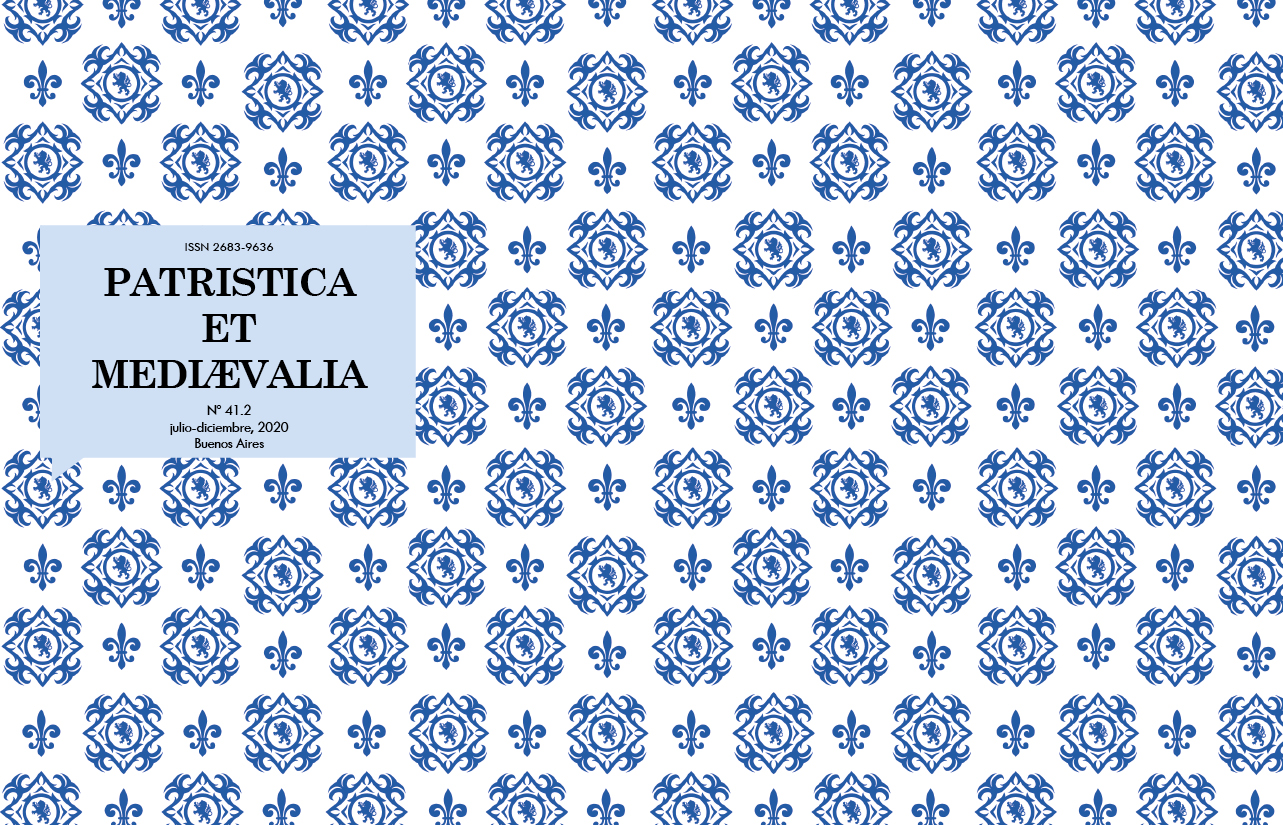Medioevofobia. Notes about researching on the Philosophy of the Middle Ages
Abstract
This note offers a compendium of thoughts and reflections regarding the difficulties that a researcher currently finds in topics related to the Middle Ages. Here are also exposed the most common arguments and the responses that leading medievalists have tried. The purpose of this work is, firstly, to show the prejudice that persists around the Middle Ages; then, to provide a bibliographic elenchus that hopefully helps those who must still justify the motivations of their choice; thirdly, to become an instrument to be updated in the future by ourselves or by those who are interested in. Finally, under the concept of “medioevofobia”, we have tried to attend the experiences we had and which we believe we will continue having.Downloads
References
Berti, E. (2004). “Il concetto di ‘bene comune’ di fronta alla sfida del terzo millennio”, Doctor Comunis 1-2, 145-163.
Beuchot, M. (2013). Historia de la filosofía medieval. México, D. F.: Fondo de Cultura Económica.
Brinton, C. (1957). Las ideas y los hombres. Historia del pensamiento de occidente. Madrid: Aguilar.
Carpintero Benítez, F. (2005). “Facultas, proprietas, dominium: tres antropologías en la base de la justicia”, Persona y derecho. Revista de fundamentación de las Ins-tituciones Jurídicas y de Derechos Humanos 52, 143-188.
Cohen, G. (1965). La gran claridad de la Edad Media. Buenos Aires: Editorial Huemul.
Costarelli Brandi, H. E. (2003). “El derecho y la justicia en Tomás de Aquino”. En: Atti del Congresso Tomista Internazionale “L’umanesimo cristiano nell III millennio: Prospettiva di Tommaso d’Aquino” (vol. 2). Ciudad del Vaticano: Pontificia Academia Sancti Thomae Aquinatis, 716-730.
Dawson, C. (1956). Ensayos acerca de la Edad Media. Madrid: Aguilar.
Finnis, J. (2004). Aquinas. Moral, Political, and Legal Theory. Oxford: Oxford University Press.
Guardini, R. (1999). Ética. Lecciones en la Universidad de Múnich. Madrid: BAC.
Heers, J. (1995). La invención de la Edad Media. Barcelona: Crítica.
Holland, T. (2019). Dominion: How the Christian Revolution Remade the World. Nueva York: Hachette.
Holland, T. (2020). “Tom Hollans: ‘No somos herederos de Roma, sino de la Edad Media cristiana’”. En: Cervera, C. (entrevistador), en ABC Cultura. Obtenido de https://www.abc.es.
Mantas España, P. (2019). “¿Para qué una Historia de la Filosofía Medieval? John Marenbon y la tesis de lo intempestivo”, Anuario Filosófico 52.2, 1-26.
Marenbon, J. (2011a). “Why Study Medieval Philosophy?”. En van Hackeren, M., Kobusch, T. y Müller, J. (eds.). Warum noch Philosophie?: Historische, systematische und gesellchaftliche Positionen. Berlín: Walter de Gruyer, 65-78.
Marenbon, J. (2011b). When was Medieval Philosophy? Obtenido de https://www.repository.cam.ac.uk/handle/1810/240658.
Pernoud, R. (2003). Para acabar con la Edad Media. Barcelona: Medievalia.
Sáenz, A. (2007). La Cristiandad y su cosmovisión. Buenos Aires: Gladius.
Saranyana, J. (2007). La Filosofía Medieval. Desde sus orígenes patrísticos hasta la Escolástica Barroca.Pamplona: EUNSA.
Spiazzi, R. (1990). Principi di Etica Sociale. Bolonia: Edizioni Studio Domenicano.
Trujillo Muñoz, A. (2010). “¡El Estado ha muerto. Viva el Estado!”, Vniversitas 120, 85-99.
1. The authors who publish in this magazine accept the following conditions:
-
They retain the copyright and grant to the magazine the right of the first publication, with the work registered under the Attribution-ShareAlike 4.0 International License that allows third parties to use what is published as long as they mention the authorship of the work and the first publication in this magazine.
-
They can make other independent and additional contractual agreements for the non-exclusive distribution of the version of the article published in this magazine (eg. include it in an institutional repository or publish it in a book) provided that they clearly indicate that the work was first published in this journal.
-
They are allowed and recommended to publish their work on the Internet (for example on institutional or personal pages).
2. AutoArchive Conditions. Authors are allowed and encouraged to distribute post-print electronic versions of their manuscripts because it promotes their circulation, a possible increase of quotation and a major reach among the Academic community. Color RoMEO: blue.













